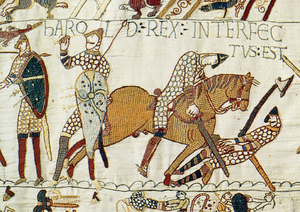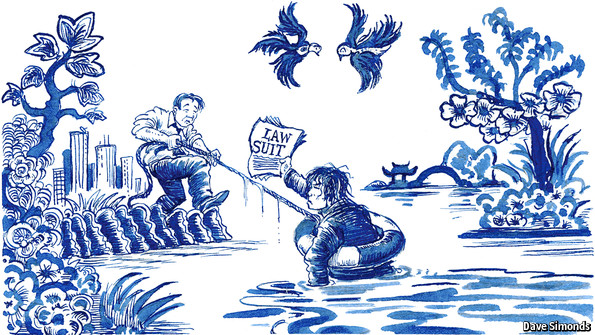Louis Althusser 來日方長︰阿爾都塞自傳
來日方長︰阿爾都塞自傳
作者:(法)阿爾都塞
出版社:上海人民出版社
出版日期:2013
This is Not a Diary by Zygmut Bauman 此非日記 / Louis ...
近5點前起 臂有些問題
Brazil 社會不公義
Brazil 社會不公義
逛紐約時報和日經.
中午壁癌的追加預算方式討論......
--------------------------
曼思故國,來日方長,載悲黑奴前車如是,彌益感喟。——《魯迅書信集·致蔣抑卮》
未來的日子還很長。表示事有可為;或勸人暫時不必急於從事某一活動。 陶曾佑 《中國文學之概觀》:“猗歟盛矣!然英奇濟濟,更僕難終,來日方長,前途未艾,盍拭目以觀其後乎!” 冰心 《寄小讀者》十九:“且喜此關一過,來日方長,我所能告訴小朋友的,將來或不止此。”
晚餐yy地瓜我米粉.
翡冷翠 Arno 河左岸一日街道漫步
副標題:豪宅 與教堂: 有點不對.
其實節目中參訪一住宅 第24代鐘樓等是其先祖捐的.....
他家的彌沙missa室的窗框對/下面就是某教堂. 形成特別的包廂.....
翡冷翠豪宅都有地下密道通情人住家 (如該城顯赫的 Medici family,)或教堂.....
Medici family嫌附近魚肉市場腥臭 整條街在四百多年前全改成珠寶店街......
商家換金魚缸 屋內有黑人傭人.....芭蕾舞學校前方有小公園......
該城的內臟料理.....
幾種糕點
http://hcplace.blogspot.tw/2013/07/arno.html
Taiwan protesters scuffle with police ahead of legislative debate on new China trade pact
The pact, signed between the sides on June 21, allows each to invest in the other’s service sectors, including banking. Its approval by Taiwan’s legislature is considered to be a foregone conclusion, because the body is dominated by President Ma Ying-jeou’s ruling Nationalist Party.
Legislative debate is expected to go on for about 10 days.
The scuffles broke out shortly after dawn when several protesters tried to push their way through a police line and enter the legislative building. There were no reports of arrests.
The opposition Democratic Progressive Party opposes the service sector bill because it says it will add to what it already considers to be undue Chinese influence over Taiwan.
It always says it will hurt small Taiwanese businesses because of difficulties they will face in competing with cash-rich, mostly state-run Chinese companies intent on investing in Taiwan.
"Conquest"
Broadcast 7 October 2000 and covering 1000–1087. 1066 is not the best remembered date in British history for nothing. In the space of nine hours whilst the Battle of Hastings raged, everything changed. Anglo-Saxon England became Norman and, for the next 300 years, its fate was decided by dynasties of Norman rulers.| The Battle of Hastings | |
|---|---|
| Part of the Norman conquest of England | |
 Harold Rex Interfectus Est: "King Harold is killed". Scene from the Bayeux Tapestry depicting the Battle of Hastings and the death of Harold. Wikipedia 寫此摘要的很外行. 這集詳述Henry II 的法律如何經過3-7代演變成皇家也要尊從的大憲章. 以及他最有名的謀殺主教故事 真的教權存 而皇權崩嗎? "Dynasty" Broadcast 14 October 2000 and covering 1087–1216. There is no saga more powerful than that of the warring dynasty – domineering father, beautiful, schemin......查看更多 WSJ的第2則關於品質的說法是太"孤芳自賞" 要看顧客的學習和市場的選擇餘地等等 這可能也可以社會學習的 The search for civic virtuesThe unkindness of strangersA soul-searching debate rages about apathy towards those in need
Today such concerns lie at the heart of an agitated national debate spurred by a number of tragedies over the past few years. In 2011 a toddler known as Yue Yue was knocked down by two different vehicles on a busy street in Foshan, a boom city in Guangdong province in southern China. The vehicles did not stop. Eighteen people walked by before a humble scrap-collector picked her up. She later died in hospital. The episode was caught on surveillance camera and published online. It led to a public outpouring, with millions posting their outrage on microblogs. Similar incidents crop up every so often. Also in 2011, an 88-year-old man collapsed in Hubei province in central China. Passers-by left him on the street for 90 minutes before some relatives arrived; he, too, later died. And last year a five-year-old boy was run over by a bus in Zhejiang province in east-central China. Videos posted online show bystanders ignoring his mother’s pleas for help. Such grisly incidents are in fact rare. It is in the nature of things that good deeds go less remarked—including, for instance, a tendency for some Chinese couples to take in babies abandoned on their doorstep and, bureaucracy permitting, bring them up. Yet the incidents have stirred up press coverage and an anguished debate about contemporary Chinese values. Commentators blame the perceived callousness on China’s growth-at-all-costs mentality which, they claim, has created a moral vacuum. The China Daily said the case of Yue Yue symbolised “our moral decline”. Worse, some say, those who come to the aid of others lack legal protection from a grasping and increasingly litigious society. Good Samaritans have often been shaken down by the very people they tried to help. In 2007 a student called Peng Yu was ordered to pay more than 45,000 yuan ($7,300) when an elderly woman whom he had taken to hospital after a fall accused him of causing the accident. The judge sided with the woman, reasoning that Mr Peng would not have bothered to help her unless he was at fault. Mr Peng got nationwide sympathy—though fresh evidence last year seemed to contradict his version of events. Cases of extortion, though also rare, are widely reported. Yunxiang Yan, an anthropologist at the University of California, wrote in an essay on the subject that they constitute “a heavy blow to social trust, compassion, and the principle of moral reciprocity”. The health ministry has done its bit to discourage good deeds. Last year it advised people in a booklet on aiding others: “Do not rush to help, but manage according to the situation.” A culture of compensation—the expectation that financial settlements will be paid to families of accident victims—has fuelled the debate. This month two teenage boys who tried to rescue two girls from drowning were pressured to pay 50,000 yuan each to the girls’ families for failing to save them. Mr Yan calls it “the Samaritan’s dilemma”: pitting a good act against the potential risk of anything going wrong. Responding to this conundrum, this month the southern city of Shenzhen, often China’s most progressive, announced that it will implement the country’s first “Good Samaritan” law. The law aims both to encourage public acts of kindness and, crucially, to protect do-gooders should things go awry. It stipulates that Good Samaritans will face no repercussions if their efforts to help others are unsuccessful. Those framed for causing an accident now have the codified right to sue their accuser and claim—what else?—compensation. Tan Fang, a professor at South China Normal University who set up a body to provide legal and financial support to Good Samaritans, argues that the new law serves an urgent need. If extended nationwide, it would make society more civil. As it happens, society is not about to collapse. Especially among the young, volunteerism and philanthropy are on the rise. After the devastating earthquake in Sichuan in 2008, which killed 69,000, some 100,000 volunteers travelled to help the survivors. Yet the Chinese still operate, more than the people of countries where trust is stronger, through networks of kin, hometown acquaintances and work colleagues. Outside such networks, people do not always see it as their responsibility to help strangers, however acute their need. China’s traumatic years under Mao Zedong only reinforced the instinct. The Communist Party destroyed people’s relations with many institutions, including, sometimes, their own families. Speaking or acting in public for the sake of others at a time of political persecution might have deadly consequences. This has added to what Charles Stafford, an anthropologist at the London School of Economics, calls an abiding “anxiety” about sticking your neck out for other people. Huge rural-to-urban migration has strained social networks further. Migration reinforces a reluctance to engage with strangers. Over time, however, the members of China’s new urban classes may come to identify with each other—and indulge more in the kindness of strangers. |

沒有留言:
張貼留言